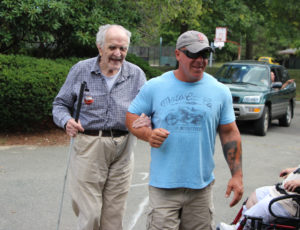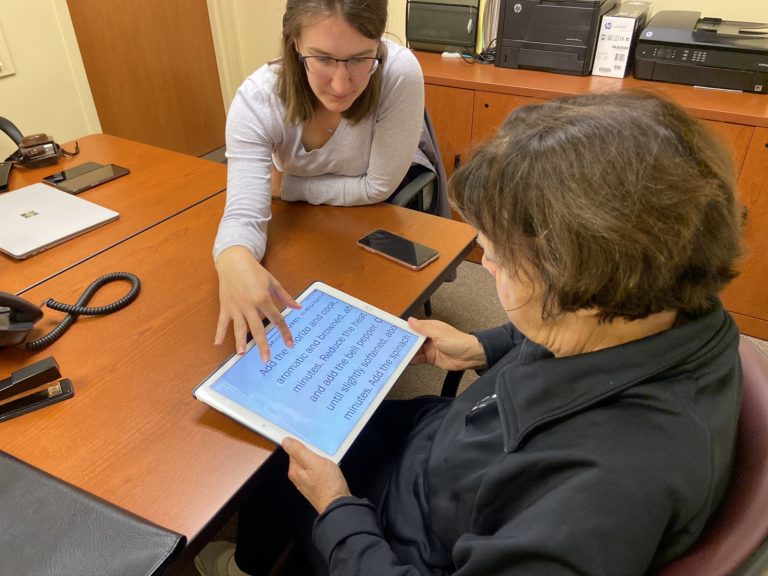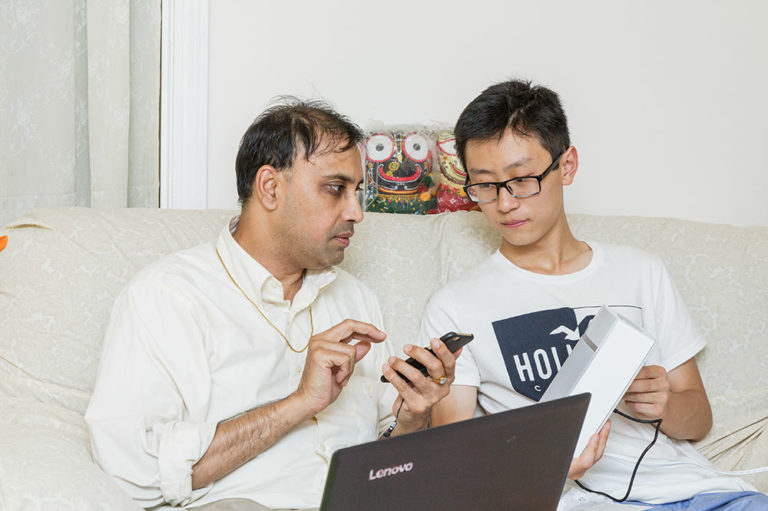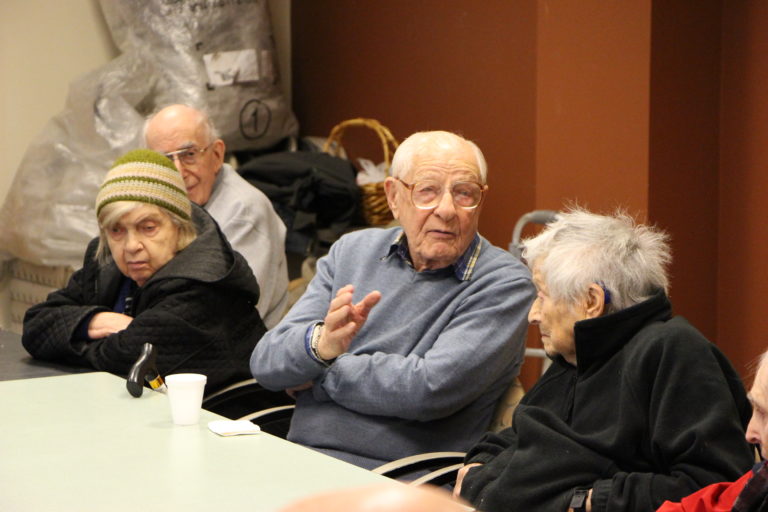The Massachusetts Association for the Blind & Visually Impaired brings you life tips for living confidently. These hacks are a peer-to-peer guide on useful techniques to live with vision loss.
Learn With Us
Check out MABVI’s Podcast, Dangerous Vision
 The Dangerous Vision podcast explores the world of blindness from those with lived experience. MABVI Board of Director and Harvard Business School senior lecturer Randy Cohen hosts this cutting edge podcast that dives deep into technology, advocacy, and personal anecdotes about living with vision loss or blindness.
The Dangerous Vision podcast explores the world of blindness from those with lived experience. MABVI Board of Director and Harvard Business School senior lecturer Randy Cohen hosts this cutting edge podcast that dives deep into technology, advocacy, and personal anecdotes about living with vision loss or blindness.
Listen and Subscribe for FREE on these platforms:
The Town of Brookline, Massachusetts has released a new instructional video showing individuals how to guide a person with vision loss in a variety of everyday situations.
During the Covid-19 pandemic, maintaining social distance when guiding a visually impaired person can be challenging. Modifications to the standard guiding techniques are recommended as we work together to mitigate the transmission of the virus. When guiding a visually impaired person, both the individual and the guide should be wearing masks and be facing in the same direction, so their breath is not directed towards one another. Using a glove can protect from skin-to-skin contact.
Additional ideas for safe guiding while social distancing can include placing a hand on the guide’s back instead of the arm, putting a shopping cart between the individual and the guide with the guide in front, using an adequately sanitized extra cane, as a guiding pole with each person holding one end, and verbal guiding from behind the person with vision loss. The person with vision loss should also be using their usual mobility aid, such as a cane or guide dog, for added safety.
The video was produced by the Brookline Commission on Disability, along with Brookline Age-Friendly Cities TV and Brookline Interactive Group Interactive Group. Appearing in the demonstration video are Paul Saner, Brookline Town Meeting member, Co-Chair of Brookline’s Economic Development Advisory Board, and former Commissioner of the Massachusetts Commission for the Blind, and Michael Allen, LCSW, Social Worker at the Brookline Senior Center. The video is narrated by Sassy Outwater-Wright, Executive Director, Massachusetts Association for the Blind and Visually Impaired.
MABVI’s Access Technology Centers are offering Zoom virtual training courses. We will have a Voiceover Basics Class on Fridays at 10:00 am, Basics of Zoom meetings on Thursdays 10:00 am and 2:00 pm if needed, and HTML & Web design, Mondays at 10:00 am. For more information on how to join these classes, contact Access Tech Center Director, Jerry Feliz jfeliz@mabcommunity.org
As part of our ongoing series, MABVI’s Access Technology and Occupational Therapists are also providing informative videos on assistive devices or access technology in order to complete daily activities. In this episode, using BARD for reading books, magazines, and more.
As part of our ongoing series, MABVI’s Access Technolgy and Occupational Therapists are providing informative videos on assistive devices or access technology in order to complete daily activities. Our first two below are about using Access Technology to navigate the kitchen.
Meet Jerry Feliz, Director Assistive Technolgy Training
Assistive Technolgy with Sassy Outwater-Wright
Videos: Tips for Confident Living With Vision Loss

Here to Help: Meet Steve Jordan, Director of Orientation and Mobility
Check out our blog for useful information and insights
Insight: Bringing Clarity to Blurry World
Services we provide
-
Access Tech
From magnification devices to smartphone apps, technology can play an enormous role in enhancing accessibility for someone who is blind or visually impaired. MABVI’s Assistive Technology Centers can help.

-
Volunteer Help
We were founded by volunteers and today hundreds serve across the state. Volunteers can read mail, help with paperwork or grocery shopping, or be sighted guides for fitness and active living.

-
Support Groups
The best support and advice is offered by people who really know what you’re going through – people who’ve had parallel experiences. Peers with shared experiences may even be able to anticipate your questions. While adjusting to vision loss, and even after you’ve grown accustomed to the change, a peer support group is a big help







